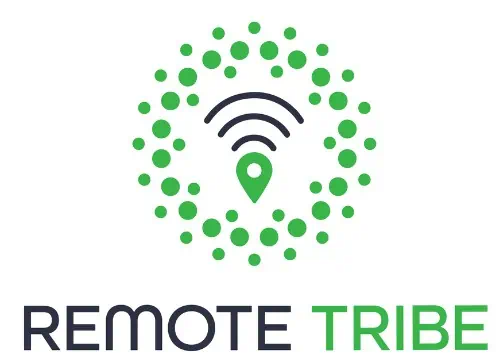We live in (COVID) times where more and more companies are willing to hire remote workers from a worldwide talent pool. However, some of them still want you on the same continent as the company’s HQ.
This complicates things a bit for European Nationals who must then look for remote jobs in Europe. Stay with us as we’ll be covering how and where to find a remote job in Europe. European citizens can find it difficult to access the remote job market from the US because a lot of North American companies are looking for USA-based people.
We don’t know if this happens because of regulations, time zone, or cultural differences. One thing is certain: it’s not easy to get hired by an American company as a European living in Europe or anywhere outside the US.
Then how can someone get a remote job in Europe, either for a European company or just if that person is based in a European country? Luckily, there are a plethora of European companies who are open to hiring “digital nomads” remotely, either based in Europe or anywhere in the world. We will show you below where you can find these remote jobs in Europe and who knows, maybe even become a digital nomad.
How do you get hired for a remote job in Europe or by a European company?
Firstly, you will need to have a European passport or have the right to work within the European Union.
Secondly, you will most likely need an address in a country in Europe or a company registered there so the employer can legally put you on the payroll or accept your invoices (if you are a freelancer).
Most likely, they will want you to fulfill one or both of the conditions above before they hire you at that company.
Are you looking for an entry level remote job and don’t know where to start? We wrote a full guide here to help you land your first remote job.
Considerations When Researching Remote Jobs (in Europe and not only)
1. Remote culture
Yes, the culture of remote companies truly exists, and it’s been around way before the COVID era. Companies like Hotjar, Buffer, and Zapier had their companies set up remotely from the very beginning.
The truth is that they succeeded, and they quickly became models for other companies looking to establish a culture of remote work.
Usually, this kind of “workplace” culture fosters community, accountability, and provides employees with everything they need to be successful.
You can use the information from the companies above to understand how remote culture works (they have some cool pages around that), and based on it you can create a set of questions to ask during your interview for a remote job (in Europe).
2. Location and working hours
There’s something called “core hours” you might want to be aware of when starting working remotely, especially if you will have to work on the European Time Zone (CET).
Even if companies offer flexibility in terms of location, many organizations still require you to work some core hours.
The core hours for a remote job in Europe might be 10 AM – 4 PM and if you live on the old continent that is fine.
However, if you have a European job and you (want to) live in Asia or South America, you might want to think again if it’s going to work.
As you’re going through job descriptions, make sure that:
- Core business hours work with your schedule
- Or core business hours aren’t a requirement
Learn more about how Darren Murph, GitLab’s Head of Remote approaches asynchronous communication and how he makes it work for a global company here.
3. Is the job really remote?
Remote work should mean flexibility, freedom, and all of the benefits that come with those things.
But, that flexibility doesn’t mean you will be able to work from anywhere on the globe.
There are many organizations that choose to work remotely or are distributed within the same time zone, state, country, or continent. You might want to clarify that at the interview or pay attention to the description.
Some of these remote jobs (in the European Union) might still be tied down by geographic location. For example, a job in Belgium might allow you to live in Antwerp and work for a company based in Brussels. Yes, you might get away with it sometimes, but it can be risky, and you might lose it.
How to Find A Remote Job in Europe
- Browsing through job boards, like Indeed and reed.co.uk, or remote-specific job portals like a remote. co, remote.ok, solidgigs.com, jobspresso.co,etc
- Joining Facebook groups that post remote jobs. There are soooo many these days. Here are a few: Remote Workers, Work Remote, Digital Nomad Jobs (make sure to ask if they are European based if the role is suitable for European residents/citizens)
- Work with specific recruiters from your industry who are specialised in remote working or are aware you are available only for remote work(within Europe or for a European based company)
- Learn how to use “#” on Linkedin and Twitter. You will be surprised how many jobs you can find with hashtags. You can start by using #remotejobs #telecommute #workathome
The Best Websites to Find Remote Jobs in Europe
Launched in 2022, our job portal is probably one of the best places to find a remote job, either for a European company or for a global company that will allow you to work from Europe.
We hand pick and bring jobs from popular industries like software development, marketing, DevOps, product management and UX/UI design.
Head over and browse thousands of jobs updated every day. You will most likely find a few that match your profile and maybe start your digital nomad life.
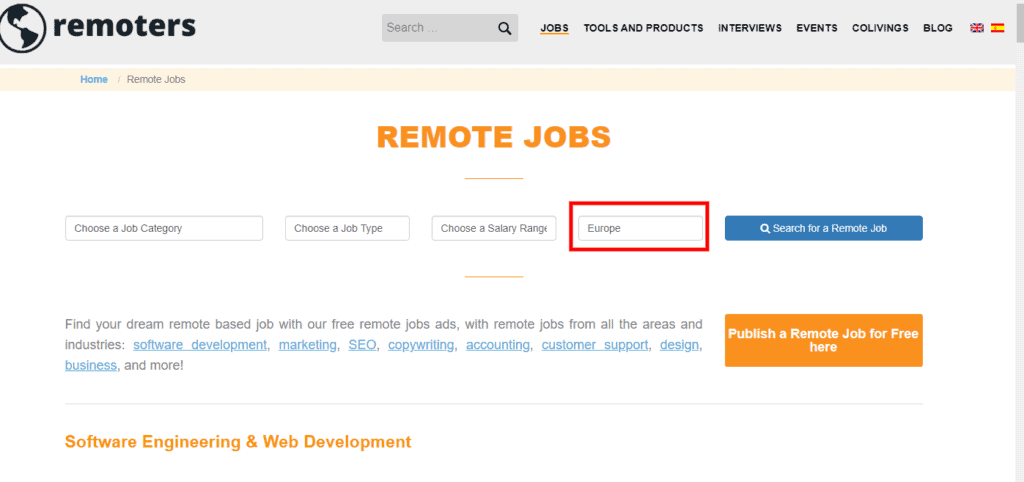
Remoters.net is a platform with resources, advice, & useful information for remote professionals, digital nomads, & remote teams.
It is a platform to promote the new paradigm of work that is now possible thanks to a more mature Internet: to work remotely doing what you like without restricting your professional options, independently from where you are, or live as a digital nomad, traveling while working without necessarily having a fixed location.
When going to the job search engine, you will have the option to select “Europe” in the location tab.
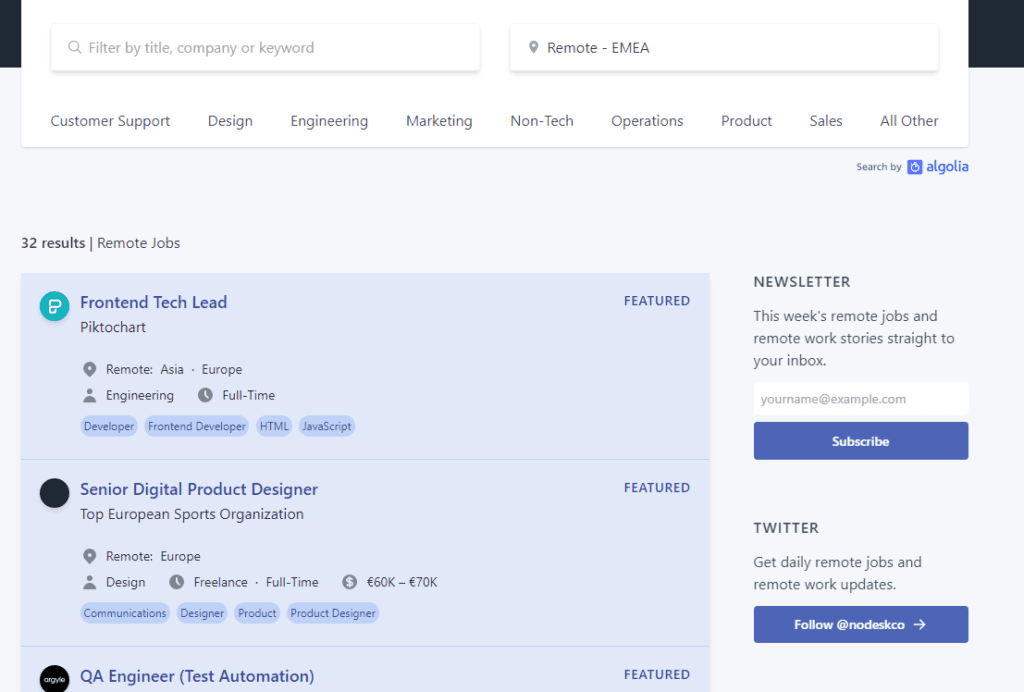
NoDesk’s mission is to enable talented humans and companies to work together remotely.
NoDesk informs about remote work and connects the global workforce. Companies of every size, from new startups to the largest distributed companies, use us to grow their remote teams.
They have an option for Remote – EMEA in the Job location tab. That’s where your focus should be.
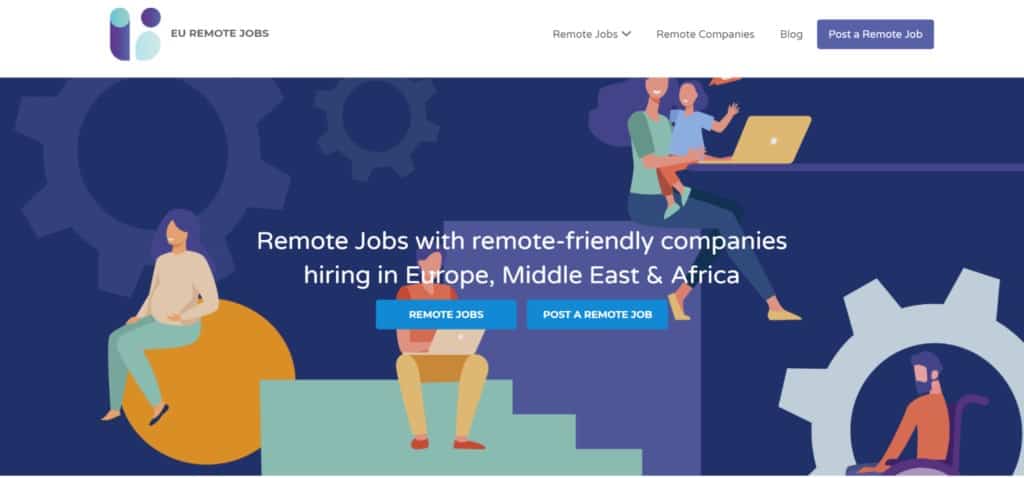
Eu Remote jobs is a simple but powerful job aggregator that is mostly focused on remote jobs in Europe. You can find IT jobs, digital marketing jobs, and even entry-level remote jobs in the EU countries. Have a look, there are plenty of jobs for every qualification.
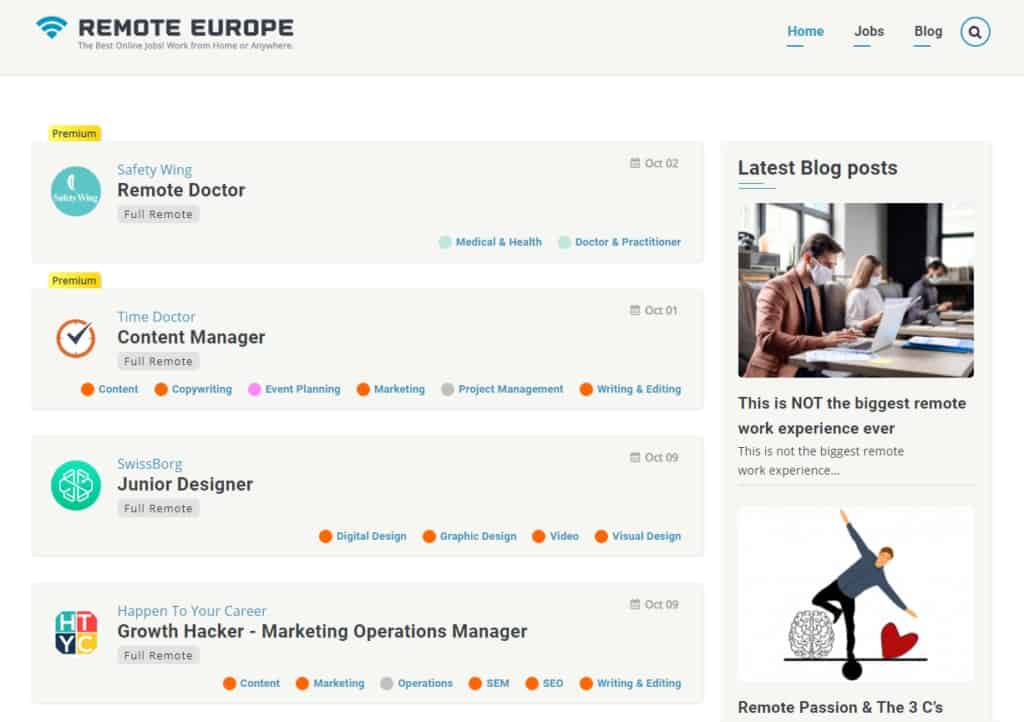
Remote Europe provides the best remote jobs, articles, events and co-working spaces for Europe mainland (50 countries).
Their mission is to connect people and companies by being the bridge to European remote workers and digital nomads.
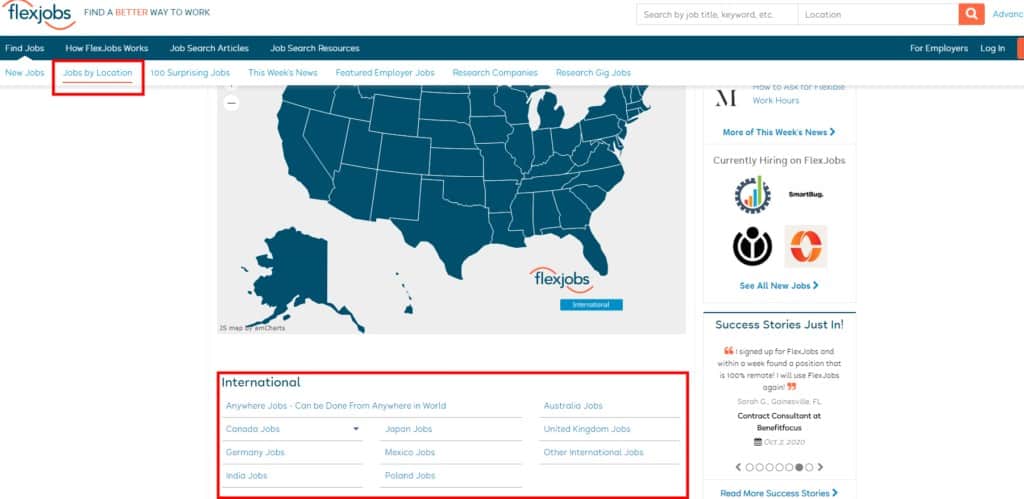
Work is changing. “The office” is being replaced by kitchen counters, home studies, nooks, and corners. Remote and work-from-home jobs are the new normal. And if you want a job that works with this new normal, we’re here for you. As the #1 job site to find remote, work from home, and flexible job opportunities since 2007, they’ve helped millions in their job search.
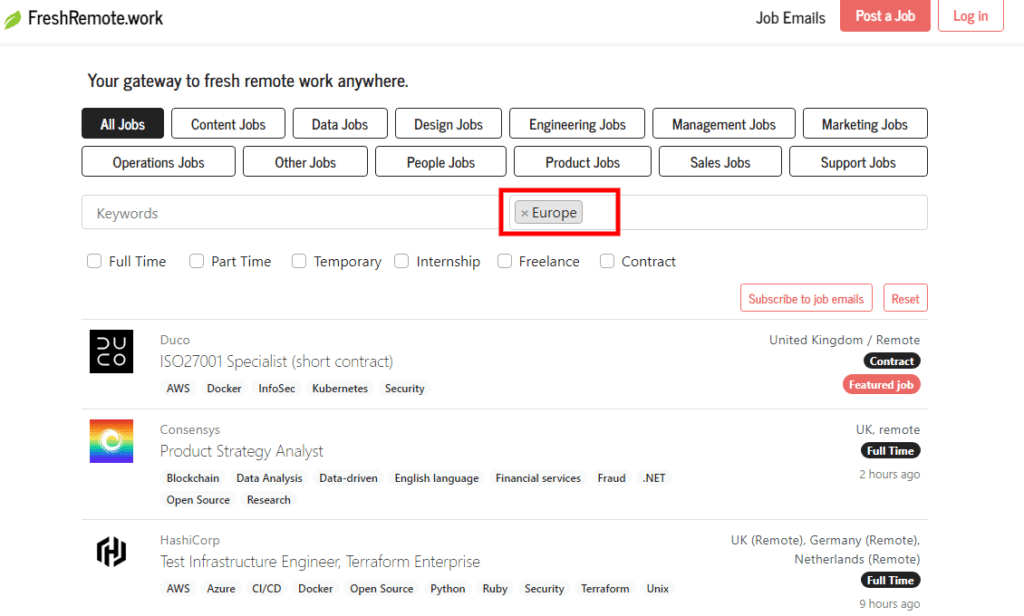
Open positions are shown as standard or featured (top) listings with an application email address or a direct link to an employer website/ATS. They publish 99% high-quality/spam-free job listings from great companies around the world, includean remote jobs in Europe.
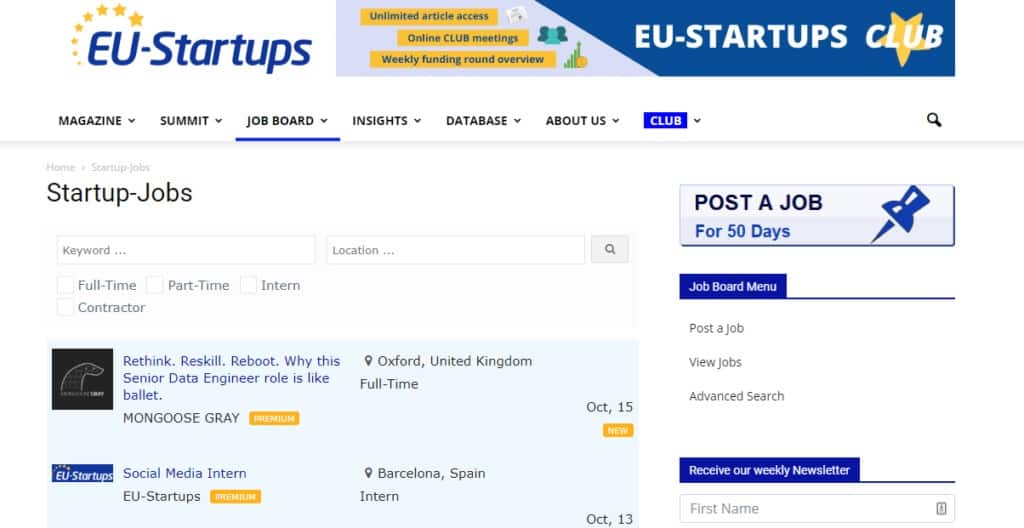
This European focused website for jobs launched as FreshRemote.work in May 2020, the site is owned and operated by foorilla LLC – a tiny global technology company headquartered in Zurich, Switzerland.
Eu-Startups features open positions that are shown as standard or featured (top) listings with an application email address or a direct link to an employer website/ATS. They do not intercept the flow by capturing applicant emails or other data and publish 99% high-quality/spam-free job listings from great companies around the world.
